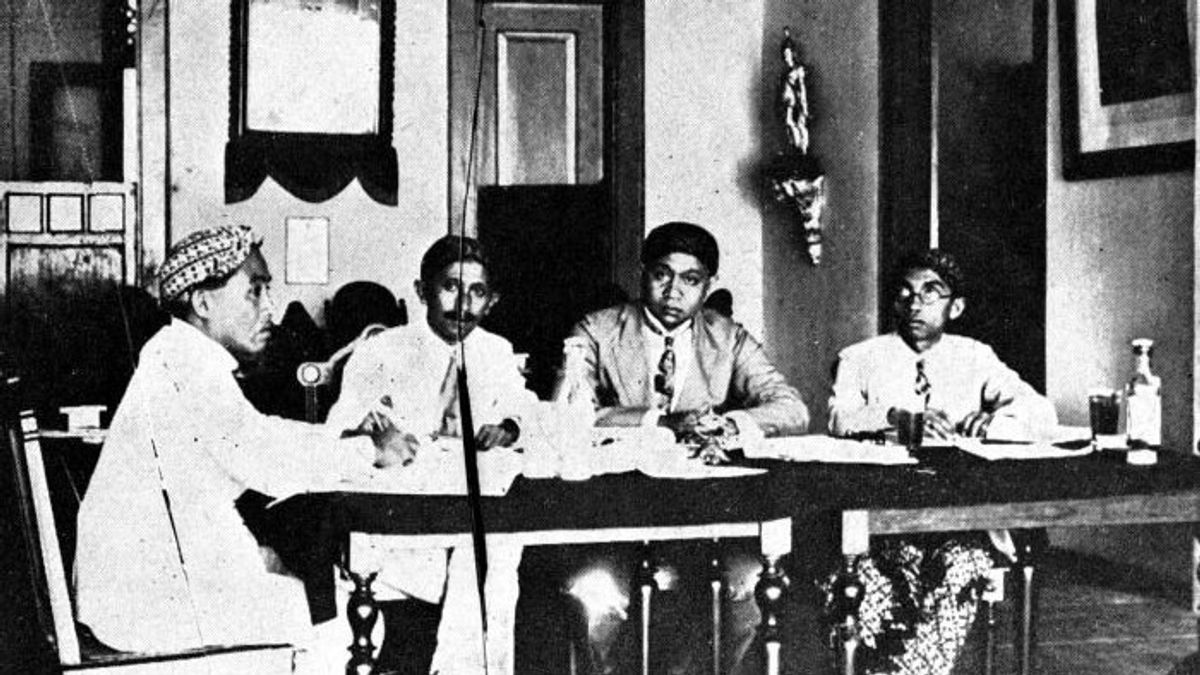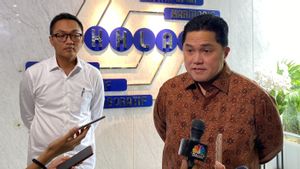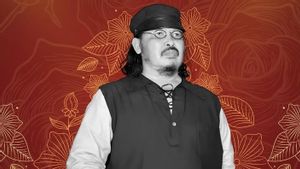JAKARTA - Volksraad is the colonial era House of Representatives (DPR). The struggle of the nation's predecessors in this institution cannot be taken lightly. Through the Volksraad, its members can inspire Dutch officials to care about the lives of the native people, as well as make Malay (Indonesian) up in class. This spirit then made the Volksraad the main platform for the struggle of the native people.
In its history, the Volksraad was formed at the insistence of movement leaders in Indonesia and the Dutch who were concerned about the fate of the native people. At that time, they wanted a forum that could increase the participation of the native people in government. As a result, the Governor General of the Dutch East Indies, Johan Paul van Limburg Stirum (1916-1921), approved the presence of a parliamentary institution called the Colonial Council.
Gradually, the name of the Colonial Council later changed to Volksraad. Quoted from Joko Darmawan in National History: When the Archipelago Talked (2017), the Volksraad was then officially formed through the decision of the Indische Staatsregeling, wet op de Staatsinrichting van Nederlandsh-Indie, Article 53 to Article 80 part Two dated December 16, 1916. Not only that, The presence of the Volksraad was also announced in Staatsblat No. 114 in 1916.
The decree took effect on August 1, 1917, which contained matters relating to the Volksraad as a legislative council. So that a parliament was born for bumiputra affairs, whose rights are guaranteed by Dutch law. In that sense, Volkstraad became the stage for the official struggle of the Indonesian people to voice their desires. Meanwhile, Soekarno, Ernest Douwes Dekker and others fought through unofficial channels.

However, the Company had thought that the Volksraad was like a "sweetener" in Dutch ethical politics. A hidden Dutch agenda is present in the Volksraad body. An agenda that wanted to dampen the growing national consciousness of the Indies community which was pioneered by movement groups such as Sarekat Islam (SI), the leader of Hadji Oemar Said (HOS) Tjokroaminoto.
This fact is compounded by the Volksraad which does not have the authority like a legislative body to make laws. Its role as an institution with one council only has the authority to advise, however, when it comes to financial matters, it must be consulted with the Governor General. In other words, the Netherlands may ignore the proposal.
"Although the Volksraad's real function is not intended to be a parliament with the responsibility to form state laws. However, the formation of the Volksraad was considered by most of the Dutch people as a step forward in the struggle for Dutch East Indies autonomy, "said Gamal Komandoko in the book Boedi Oetomo: The Beginning of the Awakening of the Nation (2008).
Far from the Dutch expectations, the Volksraad was transformed into a womb that gave rise to many important Indonesian movement figures. Initially, the Volksraad was only considered a "government puppet," which became a mouthpiece for the struggle. This is evidenced by the birth of a number of big names such as MH Thamrin, Abdoel Moeis, Otto Iskandar in Nata, and so on.
Volksraad membersInitially this institution consisted of 19 members who were directly elected by the people of the Dutch East Indies, with 10 out of 19 being natives. Meanwhile, 19 other members were appointed directly by Dutch East Indies officials. 5 of them came from the native people. However, the institution entitled to vote consists of local councils which are conservative and dominated by employees.
“The more radical Indonesians can become Volksraad members only if the Governor General appoints them. Initially, 39 percent of Indonesians were members, which rose to 40 percent when the Volksraad was added to 49 in 1921, "wrote Merle Calvin Ricklefs in the History of Modern Indonesia 1200-2004 (2005).
"The number continued to increase six years later to 42 percent when the number of members of the institution was increased to 60. Then in 1931, the ratio between European, Indonesian and other nationalities (especially Chinese) became 50 percent," according to Ricklefs.
As it grew again, the directly elected Volksraad members began to outnumber the appointed members. In 1939, out of about 70 million people, the population of Indonesia was at that time. there are only 2,228 local councils entitled to elect members of the Volksraad. Over the years, criticism of the colonial government grew heavier. To this end, the Company issued a new staatsinrichting (constitution) for 1925.
Its content was to reduce the function of the Council of the Indies to an advisory body. Meanwhile, the Volksraad began to be granted limited legislative powers. Such as determining the budget and making other domestic regulations. Even the Volksraad can propose legislation.

One member of the Volksraad who has the guts is Agus Salim. In 1922, he suddenly made a difference in a congregation. Agus appeared to have crossed the line because he immediately advanced to the podium and made a speech in Malay. Dozens of Council members, partly to Europeans, were stunned by unwritten rules requiring only Dutch as the only language spoken in the Volksraad.
“Salim's behavior stirred up the trial participants. Understandably, the Volksraad was actually an institution formed for the benefit of the Dutch East Indies government. There is a kind of unwritten rule that obliges all members to speak Dutch, "said a Tempo magazine report entitled" Politics of ZigZag Supporting Volksraad "(2013).
Salim's courage is unstoppable. He argued that as a member of the Council they had the right to speak in Malay. Salim's move was then followed by MH Thamrin's “parliamentary tiger”. In 1938, Thamrin gave a speech at the Volksraad for the first time using the Malay language, which became known as the Indonesian language.
The Malay language is considered important for the native people. Thamrin realized that. He then made the language a tool for the pro-independence struggle.
Thamrin even criticized actions that were considered dwarfing the Malay language. For his persistence, the use of Malay (Indonesian) in the Volksraad session was allowed. In the end, Thamrin's role succeeded in paving the way for Indonesian to be recognized by the world, until now.

The English, Chinese, Japanese, Arabic, and French versions are automatically generated by the AI. So there may still be inaccuracies in translating, please always see Indonesian as our main language. (system supported by DigitalSiber.id)













